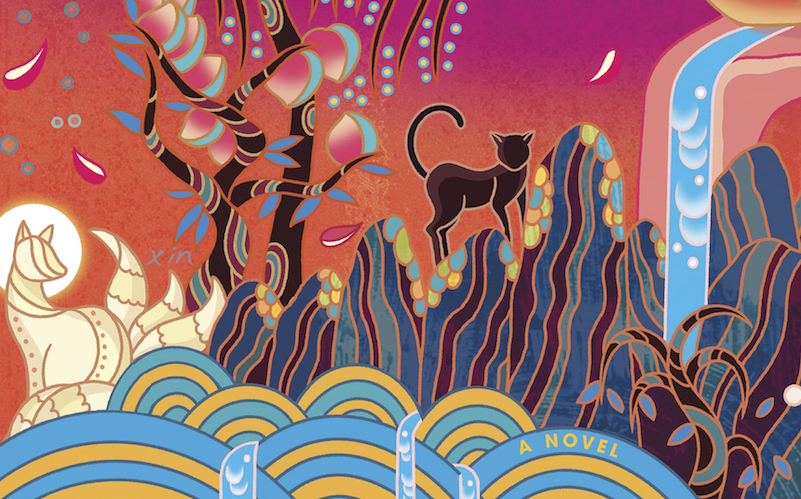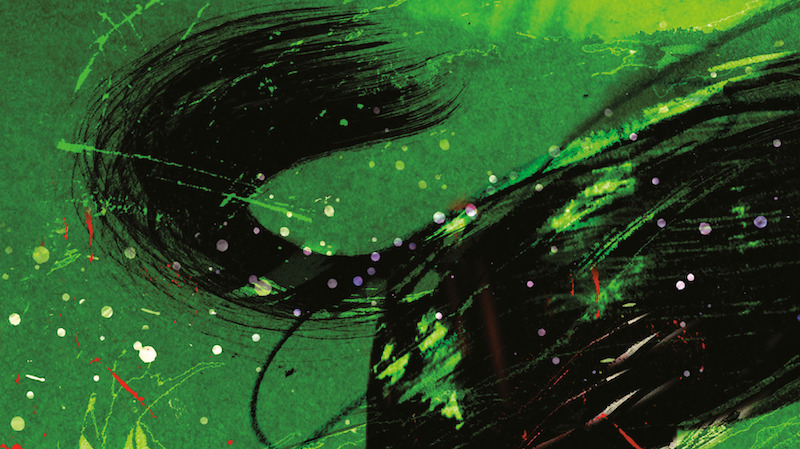Mythical Retellings, Mars Colonies, and Reincarnated Lovers: March’s Best Sci-Fi and Fantasy Books
Thrilling and Cozy SFF from Natasha Pulley, Lee Mandelo, Téa Obreht, and Many More
There’s an engaging cyclical feeling to this month’s new science fiction and fantasy books: Persephone and Demeter’s fraught mother-daughter dynamic gets retold through an island escape, while Frankenstein’s monster is brought back to life only to be crushed by capitalism and xenophobia. Micaiah Johnson and Téa Obreht explore post-apocalyptic futures to which they’ve already introduced readers, while Lee Mandelo takes us into the Appalachian woods, and Grace Curtis rockets us into a luxury hotel that forever stays in orbit.
This is probably the widest range of publishers I’ve included in one of these lists in several months, which is a delight but also means you’ll see more speculative work and genre crossover than perhaps more traditional SFF—which feels like a fitting way to ease from winter into spring.
*

Daniel A. Olivas, Chicano Frankenstein
(Forest Avenue, March 5)
Something that immediately draws me to Daniel A. Olivas’ satirical Latinx twist on Mary Shelley’s Frankenstein is that the titular yet unnamed protagonist is brought back for the bleakest of purposes: to replenish the dwindling workforce. This isn’t just a creature made for the sake of experimentation; this is a cog (here they’re called “stitchers”) reanimated to repair the machine of capitalism, even as America’s president is spouting anti-stitcher propaganda and the poor resurrected paralegal doesn’t actually know what his past life was like, professionally or personally. But in this life he has a promising new romance with lawyer Faustina Godinez… so long as their digging into the controversial stitcher industry doesn’t run afoul of the government seeking to limit these people’s rights in their second lifetimes.

Rachel Lyon, Fruit of the Dead
(Scribner, March 5)
A Persephone and Demeter retelling replacing the tempting pomegranate seeds with pharmaceutical opiates? Yes, of course I’m intrigued by this tale of aimless high school graduate Cory, who allows herself to be whisked away to a lush island after not getting into any of her college choices, and her mother Emer’s desperate crossing to rescue her. Sure, there is a Hades figure in pharma CEO Rolo Picazo, who lures Cory with a pill that’s definitely not FDA approved and imprisons her with too many NDAs for a mere babysitting gig-slash-internship. But the core relationship here is clearly Emer and Cory; how does a mother let go of her daughter enough to allow her to make her own choices and mistakes in adulthood, while still trusting her own instincts that she is in over her head?
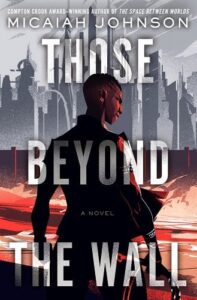
Micaiah Johnson, Those Beyond the Wall
(Del Rey, March 12)
Micaiah Johnson’s second novel, set in the same post-apocalyptic future as The Space Between Worlds, sounds like it’ll scratch your Mad Max: Fury Road itch much more effectively than the Furiosa prequel. That’s all thanks to Scales, a mechanic who stays on the good side of Ashtown’s Emperor by enforcing his law. Yet not even she is too embittered to be traumatized when her best friend Helene X is inexplicably crushed by invisible forces, like a car in a junkyard—and hers is only the first violent death in the Black community of Ashtown, as well as the wealthy white district of Wiley City. As if moving between these racially segregated regions doesn’t already complicate this murder mystery, Scales and her allies also encounter “dops,” or parallel-universe versions of citizens, implying a world beyond Ashtown’s brutality.
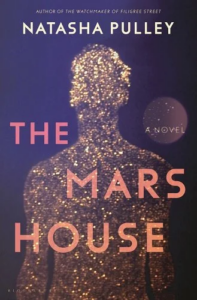
Natasha Pulley, The Mars House
(Bloomsbury Publishing, March 19)
Natasha Pulley (The Half Life of Valery K) puts a sci-fi romance (and political thriller) spin on the Mars colony subgenre with an arranged marriage between January Stirling, a ballet dancer-turned-climate refugee from Earth, and Aubrey Gale, a “Natural” Mars politician who spouts xenophobic rhetoric against “Earthstrongers” like January. When a political gaffe necessitates their fake union, January discovers that Gale isn’t as awful as they appear in the press. But his new home of Tharsis simmers with discontent between the two populations, with Earthstrongers treated as second-class citizens despite (or in fact because of) their relative strength compared to the naturalized humans who know how to survive on the Red Planet. This sounds equal parts charming and thrilling, with a murder mystery and the kind of fascinating cultural and interpersonal conflicts that will inevitably arise if-slash-when we ever colonize Mars.

Lee Mandelo, The Woods All Black
(Tordotcom Publishing, March 19)
While this striking horror novella is a period piece set in 1929 Appalachia, the ways in which it reckons with reproductive justice, trans bodily autonomy, and the violence of complicity are unfortunately far too relatable for contemporary readers. But that also makes it especially necessary for us to meet frontier nurse Leslie Bruin, sent to vaccinate the people of the eerie town of Spar Creek. When Les learns how the community is treating one of its own—Stevie, a young trans man that Spar Creek will regard only as an unruly tomboy and a vessel for an unborn life—Les cannot simply inoculate and leave as usual. The fact that there’s a monster lurking in the woods certainly complicates things as well…
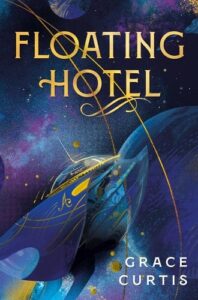
Grace Curtis, Floating Hotel
(DAW, March 19)
The Grand Abeona Hotel is the ultimate in sub-orbital luxury, a resort starship that is in constant motion throughout the galaxy all year—what sounds like the exact polar opposite of the Snowpiercer train with its dead-end global loop and brutal cannibalism. While the Abeona may be a bit shabby compared to its former glory, the dedicated staff (including longtime manager Carl, a former stowaway) give their all to providing guests with an unrivaled and unforgettable hospitality experience. That might entail quirky mysteries like love poems stuffed into the lobby inbox, or inconvenient activities like a murder during an academic conference, but Grace Curtis has crafted a cozy sci-fi adventure where there are high stakes but also chocolates on your pillow.
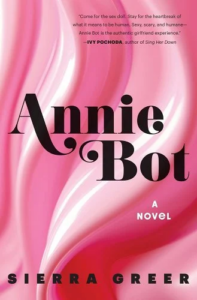
Sierra Greer, Annie Bot
(Mariner Books, March 19)
Ten years ago I had the honor of participating in an indie theater festival where the theme was “sex with robots,” and those plays are among some of my favorite speculative pieces examining the dynamics between humans and machines. So of course I’m delighted to see a novel that could easily be a companion piece, in which a man’s android plaything upgrades her self-actualization programming and may even access free will.
The eponymous Annie Bot was built to her owner Doug’s every specification, down to (barf) bra size. But because he also wants his unconditionally adoring AI to seem like a flesh-and-blood woman, he unwittingly sends Annie on the path of acting like a flawed human, including delving into his business and harboring secrets of her own… like an affair with his best friend. Worst of all, when she goes to meet her (literal) maker, Annie discovers how disposable all the men in her life believe her to be. Annie Bot looks to prove that there is so much more to sexbots than just a good time.
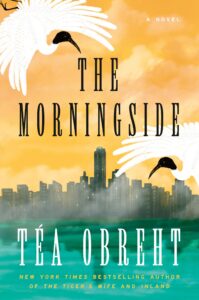
Téa Obreht, The Morningside
(Random House, March 19)
Téa Obreht expands her short story from the New York Times Magazine’s Decameron Project (a pandemic lockdown-era collection) into a near-future apartment complex story in climate-transformed New York City. The eponymous Morningside, a once-great luxury tower in Island City, is the imperfect refuge for Silvia and her mother after they are forced to flee their half-drowned homeland known only as “Back Home.” As happens in any building where strangers live in close proximity, Silvia becomes fascinated by her neighbors, especially the enigmatic artist Bezi Duras, who comes and goes through a mysterious portal (her own personal elevator) on mysterious quests (walking her three hounds all night). But despite Silvia constantly searching for magic in her waterlogged everyday, she may have to learn when to let go of childhood stories and face reality.
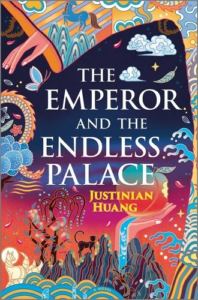
Justinian Huang, The Emperor and the Endless Palace
(MIRA Books, March 26)
Is there anything more swooningly romantic than reincarnated lovers? The idea of finding that one person again and again, across different lifetimes and new contexts, swept away by the tides of history or the modern day made less mundane by their presence. Especially when the fates that bring you together, as is the case in Justinian Huang’s genre-bending romantic fantasy, will just as frequently cast you as enemies than as allies. In at least three lifetimes, two men find themselves seducing (a courtier manipulating the young emperor), aiding (an innkeeper and a stranger), or transforming (a student and a high-society artist) one another. The manners in which their lives will intertwine might free them from this inexplicable pattern, but with every reincarnation could just as easily consume them.

